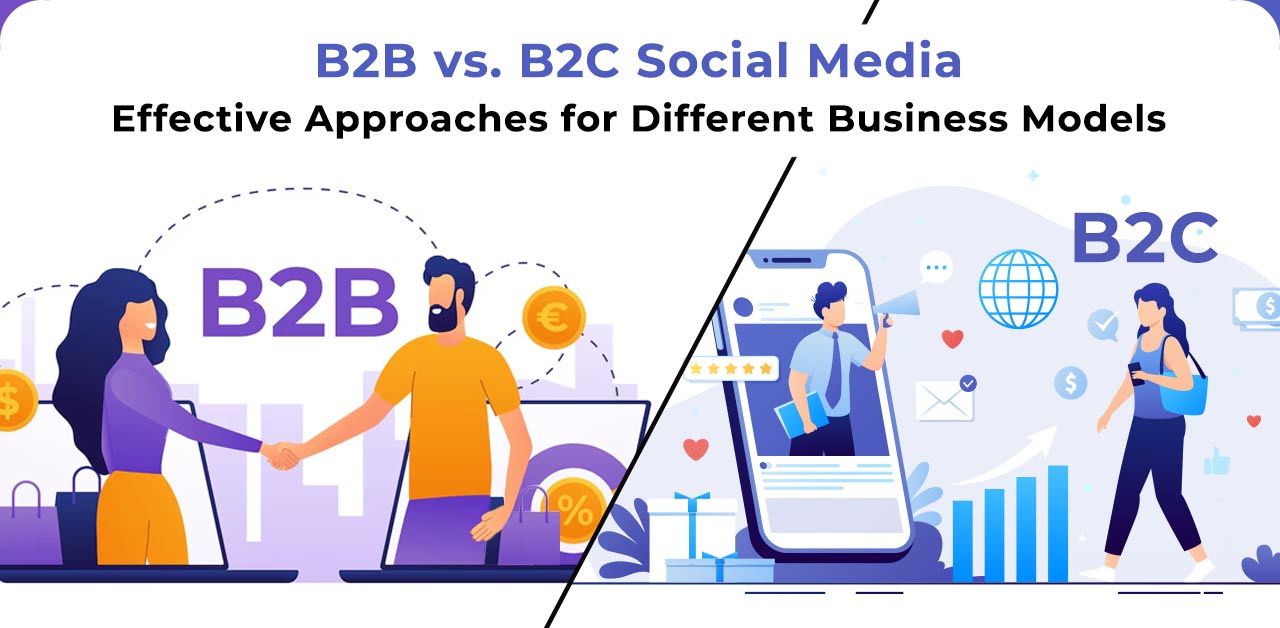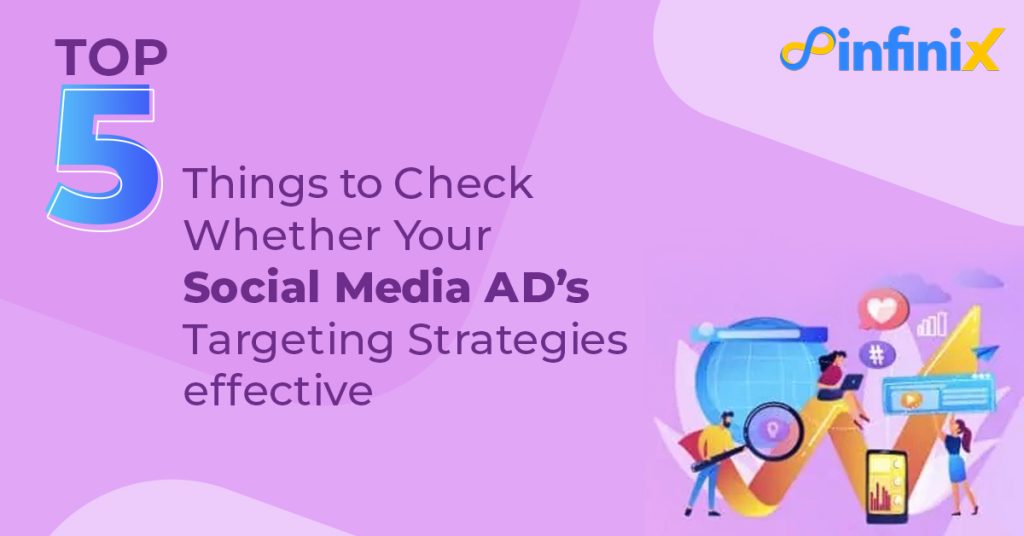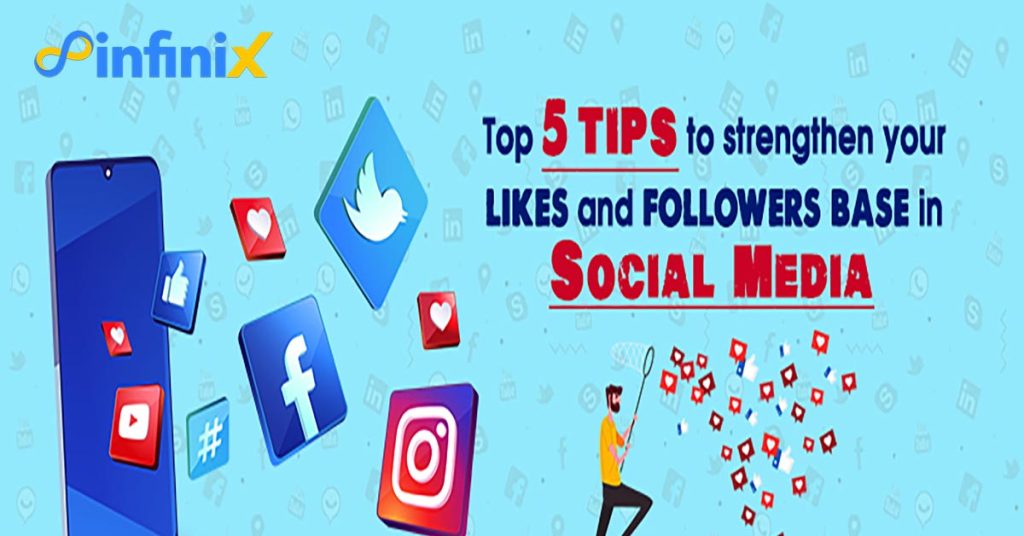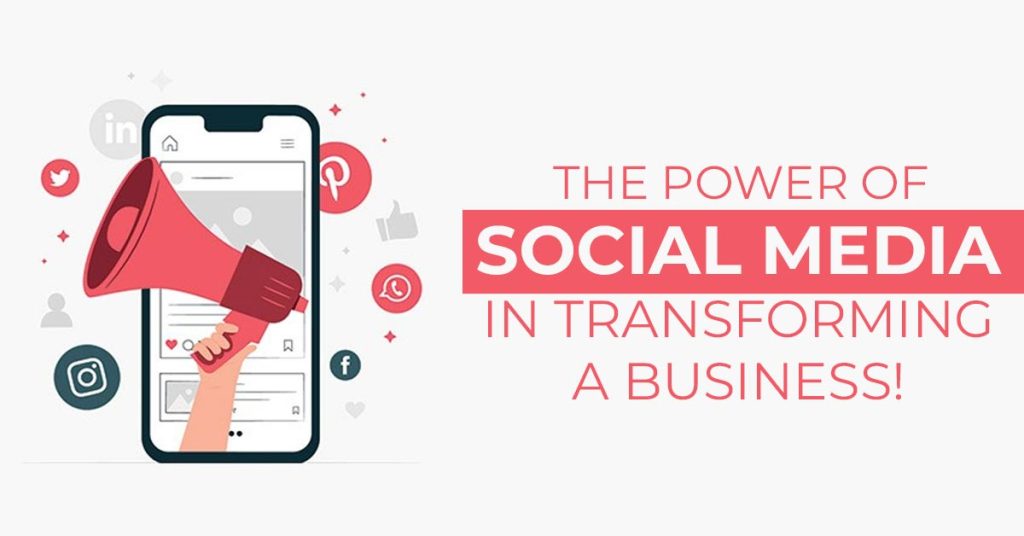B2B models are quite different from business-to-consumer models since reaching audiences through social media requires totally different strategies and approaches for each model. Each model has distinct goals, audience expectations, and types of content; hence one needs to understand such differences while preparing a well-designed social media strategy that brings successful results.
In this blog by Infinix, we’ll see more about the differences of B2B and B2C marketing, which approach and how businesses should be different in the implementation of each model.
Understanding The Basic Difference Between B2B And B2C
The main difference between B2B and B2C revolves around the target audience
- B2B marketing targets other businesses and it specifically focuses on meeting the needs and requirements of the organization decision-makers like an executive manager and procurement professionalsB2B buyers target long-term value, efficiency, and ROI. Trust, competence, and credibility are major factors in any relationship, particularly B2B relationships.
- B2C marketing focuses on individual consumers. It primarily aims to engage an audience emotionally, as well as in terms of convenience and instant gratification. The consumers are primarily driven by trends, peer influence, and personal preferences. Content is therefore always dynamic, engaging, and visually attractive.
Key Differences In Social Media Approaches:
1. Target Audience and Content Strategy
B2B: The content needs to be highly informative and educational. The interested audience would expect the latest industry trends, case studies, white papers, and contents that can make them understand how a product or service can solve a problem or improve operational efficiency. LinkedIn, Twitter, and other forums are great channels for B2B marketing.
- Tone:
The tone is usually formal, professional, and solution-oriented. Building authority, thought leadership, and credibility in the subject area is very crucial. Data-driven insights and business-centric messages form most of the content.
- Content Types:
Industry reports, webinars, infographics, deep blog posts, and much more related to business challenges form most content types. Frequent case studies and testimonials from well-established companies can create trust and influence decision-makers.
B2C: The content should be engaging, emotive, and visual. B2C customers are interested in entertainment, discounts, or solutions to a personal need. Social media platforms like Instagram, Facebook, TikTok, and YouTube are more suitable for B2C as its purpose is centered around sharing visual image and broad appeal.
- Tone:
It is light, casual, and friendly. Personalization helps B2C brands; add humor, can reach out to the relatable content where it touches on their lifestyle or emotions.
- Content Type:
Videos, UGC, contests, memes, and product showcases for B2C. The intention is to capture attention quickly, which will translate into sales or loyalty.
2. Sales Cycle and Customer Journey
B2B: In comparison with B2C, sales cycles for B2B are a longer and more involved process, as buyers often go through lots of stages of research and decision-making before committing to the final purchase. This requires B2B social media strategies to nurture leads across time, communicating value through content that walks the buyer through multiple stages of the sales funnel.
- Approach:
Relationship building is key. B2B marketers can use social media to reach out to prospects with personalized messages, share content about the industry, and stay abreast of the industry-specific conversation in which they are a part. LinkedIn InMail, LinkedIn articles, and networking groups can further these connections.
- Customer Journey
The customer journey in B2B is developing long-term relationships. Social media campaigns will focus on free trials or demos and on consultations, ensuring follow-through on leads interested in content.
B2C: The sales cycle is much shorter in B2C with quicker decision times. Many transactions can be impulse or emotion-based buying. This type of behavior is very much predisposed to being influenced by social media, largely because of the direct-to-consumer content and situational urgency through time-sensitive offers.
- Approach:
B2C companies need to concentrate on brand familiarity, loyalty activities, and promotions. While engaging customers in real-time through comments, direct message, or interactive content such as a poll or quiz.
- Customer Experience:
B2C aims at making the customer journey frictionless, enjoyable, and engaging-from discovery to purchase. Companies are also utilizing platforms such as Instagram and Facebook for direct connections to their online stores using shoppable posts and influencer marketing.
3. Preferences in the Selected Platforms
B2B: LinkedIn is one of the platforms that most B2B marketers are still using because the service is centered around a professional networking facet. Twitter is very good for quick insights, getting in touch with thought leaders, and even participating in industry-related discussions.
Quora or Reddit can be of value if a business wants to engage small niche communities that can provide expertise on specific subjects. Collaborating with our social media marketing agency in Chennai can improve your B2B social media strategies, especially in navigating these platforms effectively.
B2C: For B2C, Instagram, Facebook, and TikTok are champions in the market-places where there is scope for connecting with customers through visuals. The use of stories, reels, and live streams comes in handy to create engaging user interactions for B2C brands. Pinterest is also a great opportunity for those brands who are all related to the sectors of fashion, home decoration, and food.
While both B2B and B2C social media marketing intend to create brand awareness and conversions but the approach between the two models differs. That is, while B2B would need a way of creating a long-term relationship, creating authority, and generating leads through educational content and professional networking, B2C social media needs to focus on generating emotional engagement through influencer marketing as well as visually appealing content.
Bearing all these differences in mind, businesses can change their major social media strategies according to the needs of the customers and those of the business. Our digital marketing services in Chennai can help to customize these strategies to meet the specific needs of your business, whether B2B or B2C.




